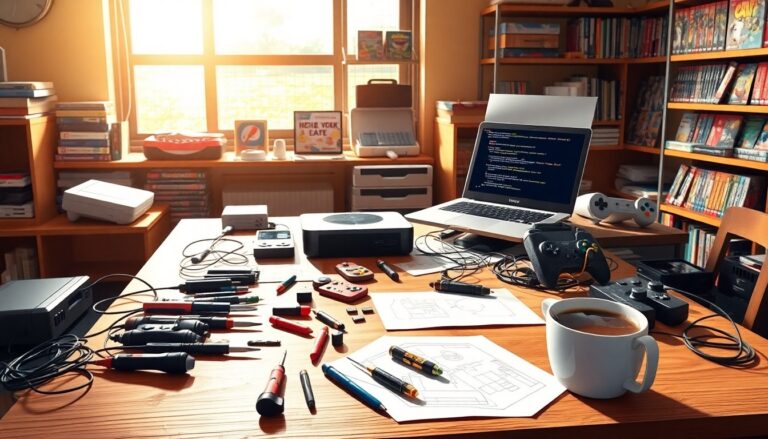Argomenti trattati
The world of gaming frequently intersects with complex legal frameworks, particularly regarding modding practices for consoles like those produced by Nintendo. Recently, the gaming community has witnessed a crucial legal confrontation that highlights the ongoing tension between game developers and modders. This article offers a detailed overview of Nintendo’s recent legal actions against modding activities, emphasizing the implications for both the industry and the community.
Nintendo’s Legal Victory Against Modding
Nintendo recently achieved a significant legal victory against Ryan Michael Daly, a U.S.-based modder who operated the now-defunct ‘Modded Hardware’ storefront. The court ruled in favor of Nintendo, awarding the company a stipulated judgment of $2 million. This ruling followed a year-long legal battle, during which Daly initially denied any wrongdoing but ultimately consented to the judgment.
This judgment is particularly noteworthy given the increasing scrutiny of modding practices. The U.S. District Court for the Western District of Washington issued an order that not only imposes financial penalties but also includes a permanent injunction against Daly. This injunction prohibits him from selling or possessing any devices that circumvent Nintendo’s security measures, including tools that facilitate piracy.
The court’s ruling reflects a broader trend in the gaming industry, where developers are increasingly taking action against unauthorized modifications that undermine their intellectual property. Nintendo’s proactive stance serves as a warning to other modders regarding the potential legal consequences of their actions.
The Implications of the Ruling
The implications of this ruling extend well beyond the financial penalties imposed on Daly. The court’s decision establishes a precedent that reinforces the legal stance against modding activities deemed to infringe on copyright laws. This ruling aligns with the provisions of the Digital Millennium Copyright Act (DMCA), which aims to protect digital content creators from unauthorized use and distribution.
Nintendo’s complaint characterized Daly’s tools as devices primarily designed for piracy, arguing that they had no legitimate purpose other than to bypass security measures. This characterization is crucial, as it adheres to legal standards established in previous copyright infringement cases. The ruling not only affects Daly but also sets a tone for how future cases involving modding will be approached by the courts.
Moreover, the injunction empowers Nintendo to take further action against any additional modding activities. It allows the company to seize control of Daly’s website and any remaining stock related to the distribution of modding tools. This assertive approach underscores Nintendo’s commitment to protecting its intellectual property and maintaining control over its gaming ecosystem.
A Closer Look at the Modding Community
While the ruling may deter some modders, it raises important questions about the future of modding within the gaming community. Many enthusiasts argue that modding enhances the gaming experience by allowing players to customize their consoles and games. However, the legal landscape is shifting, and modders must navigate these waters carefully to avoid legal repercussions.
The community has seen similar legal actions in the past, such as Nintendo’s pursuit of Team-Xecuter hacker Gary Bowser, who was sentenced to prison and ordered to pay millions in restitution. These cases illustrate the significant risks associated with modding activities that infringe on copyright laws.
As the legal framework surrounding gaming continues to evolve, modders must remain vigilant and informed about the potential consequences of their actions. The ongoing dialogue between developers and the modding community will likely shape the future of gaming, as both sides seek to balance innovation with the protection of intellectual property.
Nintendo recently achieved a significant legal victory against Ryan Michael Daly, a U.S.-based modder who operated the now-defunct ‘Modded Hardware’ storefront. The court ruled in favor of Nintendo, awarding the company a stipulated judgment of $2 million. This ruling followed a year-long legal battle, during which Daly initially denied any wrongdoing but ultimately consented to the judgment.0
Nintendo recently achieved a significant legal victory against Ryan Michael Daly, a U.S.-based modder who operated the now-defunct ‘Modded Hardware’ storefront. The court ruled in favor of Nintendo, awarding the company a stipulated judgment of $2 million. This ruling followed a year-long legal battle, during which Daly initially denied any wrongdoing but ultimately consented to the judgment.1

